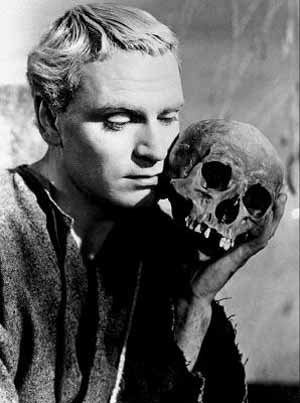Alexandra Petri yesterday had an amusing post on her The Washington Post blog about how many of Shakespeare’s plays would have ended differently if their characters had owned owned smart phones:
–Romeo and Juliet text each other about the poison
–Hermia would use GPS
–To handle the Ides of March, Caesar would telecommute.
–To check on Desdemona after hearing accusations from a fellow worker, Othello could log keystrokes.
But then, after wondering how Shakespeare’s reputation has soared so high, Petri got around to admitting that there’s something there after all:
Look at his most famous play. Hamlet? A whiny college student, evidently overeducated and underemployed, comes home for break, sees a ghost and dithers. Eventually some pirates show up, but wouldn’t you know, they remain offstage. Shakespeare is one of the few writers in history who, given the option of including pirates in a play, thinks, “Nah, you know what? I’d rather have this dithering hipster talk about mortality some more.”
Come to think of it, maybe he’s never been more relevant.
People complain about their Millennials moving home. Try having Hamlet in your basement for a semester. “Tis not alone my inky cloak, good mother, nor customary suits of solemn black…” That would get old at breakfast, I imagine.
His plays still tell the truth, boiled down to their essences.
King Lear: Your kids put you in a home? You should be so lucky!
Titus Andronicus (or, Guess Who’s Coming As Dinner?): Cannibalism is never the answer.
Romeo and Juliet: Check your messages before ingesting poison.
The Tempest: Wizards pretty much get to do whatever they want.
And then Petri mentions something else vital that Shakespeare gives us: a common referent:
And he’s one of the few writers we still have in common. We’re dragged through the thorns of his work so that we’ll have something to talk about on the other side.
Her conclusion echoes the immortal epitaph of Ben Johnson, “He was not of an age but for all time.”
Or as Petri puts it:
Write what you know? Shakespeare adamantly didn’t. But in the process, he wrote what we all know.
And he didn’t need a smartphone to do it.


